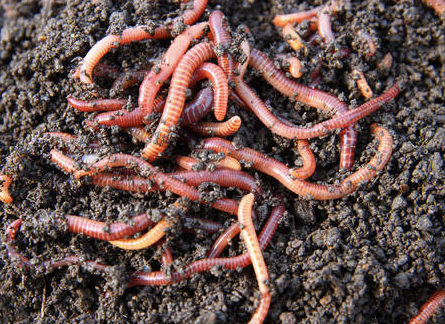BioChar-Carbon Sequestration and Soil Fertility
By Brian Skeele, on March 19th, 2011
Black Soil, biochar, a special kind of charcoal, has been discovered in the Amazon jungles, as well as in Japan. Tierra Preta, as it is also called in Brazil, has amazing properties. In the midst of large amounts of rainfall, where large quantities of biochar have been introduced into the soil, the soil’s fertility has lasted for centuries. This special kind of charcoal retains nutrients for plants and creates a most hospitable environment for microorganisms and has provided fertile soils for large populations in the Brazilian jungles for several thousand years.
As the “charcoal” withstands being broken down for long periods of time, modern soil scientists and farmers have realized Biochar could be the most effective way to sequester carbon out of the atmosphere, while adding to a soil’s fertility. Most any material that contains carbon can be “cooked” to not only create a charcoal like product, but also the gases released during cooking process, pyrolysis, can be used as a substitute for fossil fuel. These two together have raised the specter that creating biochar out of waste carbonaceous material (agricultural wastes, etc) could be a major part of a long term solution to global warming, while adding to a soil’s fertility… READ MORE >>
Fuels-pick your poison!
By Brian Skeele, on March 19th, 2011
Nuclear, coal, natural gas, methane, biochar oil, ethanol, algae bio-diesel, the sun, the tides, the wind, or good old gasoline…each comes with its costs. As we innovate toward a sustainable lifestyle, the refining processes and embedded energy, the delivery system, and all the other externalities come into play.
Currently 60% of the US’s primary electricity comes from coal fired plants. The burning of coal releases mercury into the air. The fish in New Mexico have quite a bit of mercury in them, especially those located downwind from the Four Corners Generating Plants. Fish in the Pacific Ocean have high levels of mercury as well, as the mercury bio-accumulates in the bigger fish, like tuna. The Chinese coal fired plants are the mercury source for our sushi and salmon!
Agricultural crops converted to fuels come with GMOs, fertilizer run off, soil degradation, and embodied production and delivery costs. Local production and supply keeps dollars in the community, building wealth and cutting transportation costs. Talk about complicated…. READ MORE >>
Turning Trash into Gold!
By Brian Skeele, on March 19th, 2011
Red Wigglers Rock!
They thrive in rotting vegetation, compost, and manure; They are rarely found in soil, preferring conditions where others cannot survive. I am, of course, referring to the earthworm also called manure worms, or as their friends call em Eisenia foetida. But whatever you call em, Red Wigglers rock!
 Over the years I’ve had several “defining moments” with earthworms. Early on, I found I wasn’t that enthusiastic about growing food, but I loved building compost piles. Maybe it was all the effort that double digging required, or the book by Ruth Stout about just building a compost pile on the driveway and things will grow. Somehow I got the message earthworms and compost piles are where it’s at…. READ MORE >>
Over the years I’ve had several “defining moments” with earthworms. Early on, I found I wasn’t that enthusiastic about growing food, but I loved building compost piles. Maybe it was all the effort that double digging required, or the book by Ruth Stout about just building a compost pile on the driveway and things will grow. Somehow I got the message earthworms and compost piles are where it’s at…. READ MORE >>
